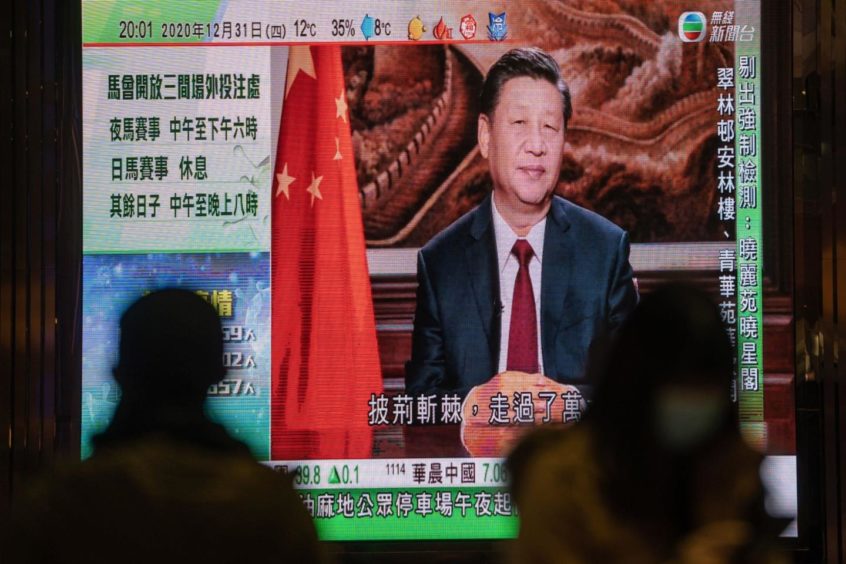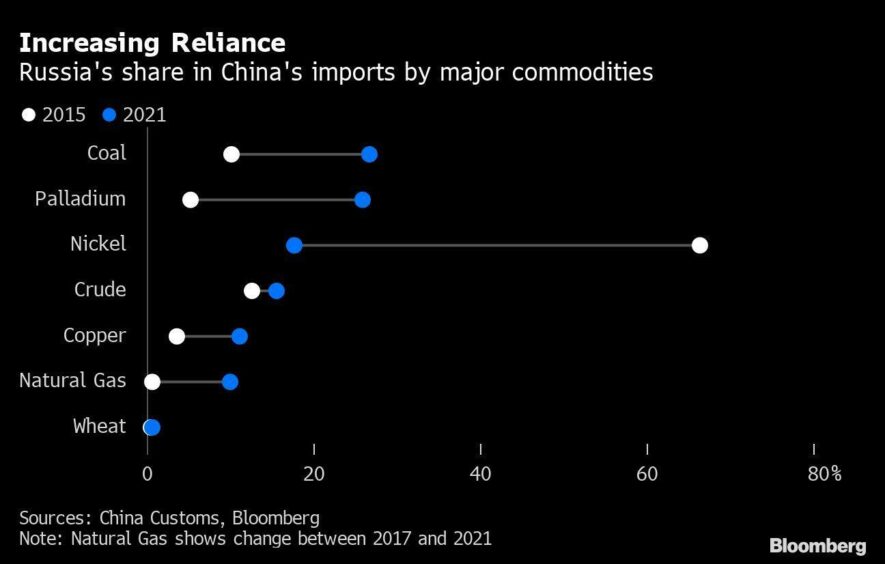
China and Russia’s trade relationship has become more complicated since the war started more than three weeks ago, raising questions about the future flow of energy between the two powerhouses.
Before the war in Ukraine, Russia’s importance to China as a supplier of raw materials was only growing. That was solidified in the “no-limits” friendship announced between the two nations ahead of the Winter Olympics in Beijing, which was celebrated with the signing of new deals to furnish China with Russian oil and gas. A new gas supply deal via the Far East route underscored how escalating tensions with the West have pushed forward Russia’s ‘Pivot to the East’, a long-term strategy to diversify its resource exports to Asian countries, especially China, Energy Voice reported earlier this month.
Immediately after the invasion, Chinese officials said they disagreed with unilateral sanctions and would continue normal trade relations with Russia. But since then banks have paused financing purchases and traders are grappling with logistics, while more recently China’s foreign minister said Beijing doesn’t want to be affected by sanctions. US President Joe Biden warned President Xi Jinping on Friday of “implications and consequences” should China support Russia’s invasion of Ukraine.
The biggest trade opportunities may be in energy. The growth in its economy means China has an ever-expanding need for coal and gas to heat homes and power factories. The nation is coal-rich but still prone to shortages, and relatively gas-poor, making imports crucial for keeping up with demand.
Russia is now the second-largest shipper of coal to China after Indonesia, while its gas exports have grown considerably since the Power of Siberia pipeline began flowing in 2019. Crude shipments have also ticked higher in recent years — including pipeline oil, Russia was the No. 2 supplier to China in 2021, behind only Saudi Arabia.
Russian coal has helped fill the gap caused by China’s ban on Australian shipments since late 2020, and more recent disruptions to cargoes from Mongolia and Indonesia. Moreover, the US and Australia supply China with a little over half of its imports of liquefied natural gas, which move by ship, and that’s a dependency which Beijing has been trying to break.
But following the invasion, Chinese buyers, and the lenders that finance their purchases, have largely shunned Russian shipments of coal and LNG as well as crude. That hesitancy may be temporary given the unknown end-point of international action against Moscow. But it could also reflect companies’ deeper concerns about becoming ensnared in sanctions that could affect global banking arrangements, as well as the government’s fears over getting shut out of far more important markets for Chinese goods.
“For any Chinese firm with substantial operations abroad, continued access to the US financial system is more valuable than any deals it can do with Russia, though some small firms may be willing to run the risk,” Capital Economics said in a note last week.
Logistics are also an issue. Several Chinese coal importers and Russian miners met this month to discuss boosting volumes, but cited several obstacles, including whether China’s yuan-based cross-border payment system will be usable, as well as issues with transportation capacity and coal quality, according to the China Coal Transportation and Distribution Association.
For sure, China is committed to the long-term success of Russia’s biggest energy projects. Another gas pipeline is under discussion, and Wood Mackenzie Ltd. estimates China’s oil and gas investments in its neighbour at $24 billion, including stakes in the Yamal and Arctic LNG projects in Russia.
There’s no way that China would follow international companies and exit its Russian energy assets, said Neil Beveridge, a Hong Kong-based senior energy analyst at Sanford C. Bernstein. “China has this huge growth opportunity for Russia.”
Under those circumstances, it’d be odd for China to cut back on Russian LNG purchases over the longer term. But the outlook for coal is entirely different. Russian sales are almost a rounding error compared to the 4 billion tons of fuel that’s mined domestically, and Beijing’s plan to raise the capacity of its coal industry by 300 million tons would suggest it’s seeking to enhance its energy security by doing away with imports entirely.
For crude, the calculation also revolves around freight rates, and the high premiums attached to Russian shipments because of the war. There are a lot of nations supplying China with oil, and even when prices are sky-high, that allows buyers to be a bit more picky.
Recommended for you

 © Supplied by Bloomberg
© Supplied by Bloomberg